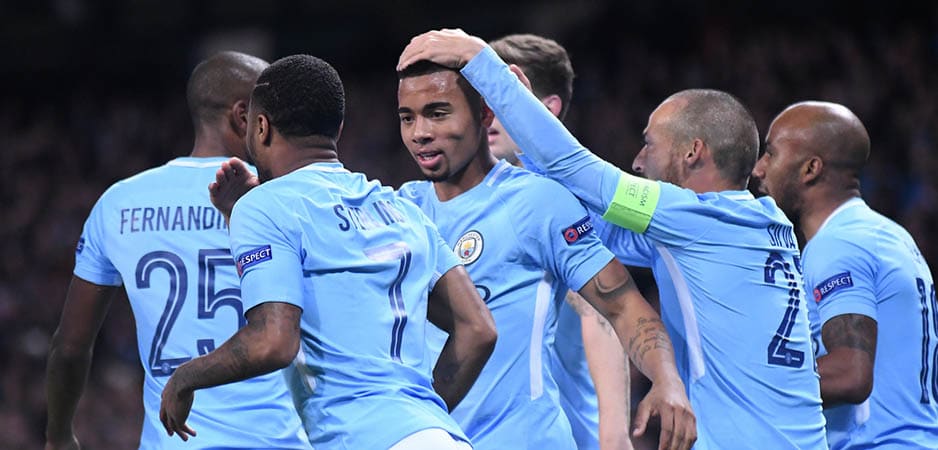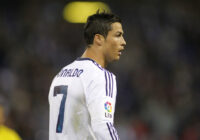The rush to buy English football clubs is, at least in part, the latest round in the Gulf crisis.
The bitter rift between Qatar and its Saudi and Emirati-led detractors could spill onto the pitches of English football. A flurry of reports suggest that the Gulf rivals are seeking to buy big-name English clubs.
Abu Dhabi billionaire Sheikh Khaled bin Zayed al-Nahyan, a member of the ruling family, said this week he had agreed terms with Newcastle United owner Mike Ashley to buy the English Premier League club. Meanwhile, Qatar was reportedly in talks to purchase a stake in Leeds United — which plays in the second-tier Championship league — while Saudi Arabia had been rumored earlier this year to be circling Manchester United.
Stepped-up interest from the Gulf could take the region’s rivalry from the European level, where the United Arab Emirates’ acquisition of Manchester City and Qatar’s buying of Paris Saint-Germain set examples, into a national competition. While both takeovers have contributed to the UAE and Qatar’s soft power despite hiccups, Manchester City’s owner, City Football Group, has created a template for commercial exploitation. It has built what are some of the Gulf’s most valuable brands by acquiring stakes in clubs in the United States, Australia, Japan, Spain, Uruguay and China.
The Gulf Crisis
The rush to buy English clubs is, at least in part, the latest round in the Gulf crisis, which erupted in June 2017 with an alliance led by the UAE and Saudi Arabia, declaring an economic and diplomatic boycott of Qatar.
Doha has, so far, emerged on top with Qatar’s unexpected winning of the Asian Cup earlier this year — in, of all places, Abu Dhabi — and its successful thwarting this month of UAE-Saudi-backed efforts by FIFA to force it to expand the 2022 World Cup from 32 to 48 teams and share the tournament with neighboring Gulf states. Qatar’s victories came on the back of a series of failed, or at best partially successful, Saudi and UAE efforts to enhance their influence in global football governance, which would have enabled them to pressure the Gulf state.
The rush also suggests that the soft power gains of Arab states seeking to project themselves in ways that contrast starkly with their image as autocratic and often brutal violators of human rights, including widely-criticized migrant labor systems, outweigh the associated reputational risks. That assessment is borne out by Manchester City fans’ enthusiastic embrace of the club’s Emirati owners and willingness to ignore the country’s human rights record. Singing to the tune of the 1920s classic Kum Ba Yah, fans chant, “Sheikh Mansour m’lord, Sheikh Mansour, oh lord, Sheikh Mansour,” a reference to Sheikh Mansour bin Zayed, Manchester City’s owner, who is also the UAE minister of presidential affairs and half-brother of UAE President Khalifa bin Zayed al-Nahyan.
Like Sheikh Mansour, Newcastle’s buyer Sheikh Khaled, whose business ties appear to be more with Dubai than Abu Dhabi, is likely to project his acquisition as personal even if the UAE’s de factor ruler, Crown Prince Sheikh Mohammed bin Zayed, keeps a tight lid on government as well as family affairs.
The Gulf states, responding differently to criticism, have nevertheless not had an easy ride in seeking to garner soft power and polish tarnished images. In contrast to the UAE and Saudi Arabia who seldom respond to their critics, Qatar has reacted to an avalanche of criticism since its winning of the 2022 World Cup hosting rights by engaging with its detractors. Although too little too late for its more strident critics, Qatar has made substantial changes to its kafala or sponsorship system that puts employees at the mercy of their employers. To be fair, so has the UAE, even if it did so less because of pressure by human rights and labor groups and more as part of an effort to project itself as a model, cutting-edge, 21st-century state.
Business Practices
Nonetheless, both the UAE and Qatar could see their reputational gains undermined if legal proceedings involving their football business practices go against them. Manchester City has reacted angrily to an investigation by UEFA into claims of financial fair play irregularities, which could lead to a Champions League ban. Yves Leterme, chairman and chief investigator of UEFA’s club financial control body investigatory chamber, has referred the allegations to the group’s adjudicatory chamber to issue a ruling. Similarly, Paris Saint-Germain’s president, Nasser al-Khelaifi, was last week charged in France with corruption in connection with the bidding process for this year’s world athletics championships in Qatar. Khelaifi is also a UEFA executive committee member and chairman of Qatar’s television network, beIN Sports.
 In an argument that could spread to Britain, Javier Tebas, the president of La Liga, Spain’s top football league, denounced Manchester City and Paris Saint-Germain as “state-run clubs, one off petrol money, one off gas” that should be expelled from European competitions as threats to the sport. Echoing Manchester City fans’ rejection of criticism of the UAE as “racist,” the club’s chairman, Khaldoon al-Mubarak, dismissed Tebas’ assertions as ethnic slurs.
In an argument that could spread to Britain, Javier Tebas, the president of La Liga, Spain’s top football league, denounced Manchester City and Paris Saint-Germain as “state-run clubs, one off petrol money, one off gas” that should be expelled from European competitions as threats to the sport. Echoing Manchester City fans’ rejection of criticism of the UAE as “racist,” the club’s chairman, Khaldoon al-Mubarak, dismissed Tebas’ assertions as ethnic slurs.
That’s a tactic that will likely work as long as fans such as Howard Hockin concede that they may be “hypocrites” who “don’t care about human rights in the Middle East.” A Manchester City podcaster, Hockin adds: “Abu Dhabi is an up-and-coming country [sic], and it wanted to boost its profile. It’s a PR thing, and we’re fine with that … I should care but I don’t. I should care about where my shoes come from — if they’ve been made by slave labour — but I don’t. I don’t look to football for my moral code. I don’t think I’ve sold my soul to support Man City.”
The question is whether Hockin would stick to his position if the business practices of his club’s owner or the politics of the UAE become a liability rather than an asset. With Khelaifi’s legal issues, the same question could confront Paris Saint-Germain fans.
The views expressed in this article are the author’s own and do not necessarily reflect Fair Observer’s editorial policy.
Support Fair Observer
We rely on your support for our independence, diversity and quality.
For more than 10 years, Fair Observer has been free, fair and independent. No billionaire owns us, no advertisers control us. We are a reader-supported nonprofit. Unlike many other publications, we keep our content free for readers regardless of where they live or whether they can afford to pay. We have no paywalls and no ads.
In the post-truth era of fake news, echo chambers and filter bubbles, we publish a plurality of perspectives from around the world. Anyone can publish with us, but everyone goes through a rigorous editorial process. So, you get fact-checked, well-reasoned content instead of noise.
We publish 2,500+ voices from 90+ countries. We also conduct education and training programs
on subjects ranging from digital media and journalism to writing and critical thinking. This
doesn’t come cheap. Servers, editors, trainers and web developers cost
money.
Please consider supporting us on a regular basis as a recurring donor or a
sustaining member.
Will you support FO’s journalism?
We rely on your support for our independence, diversity and quality.






